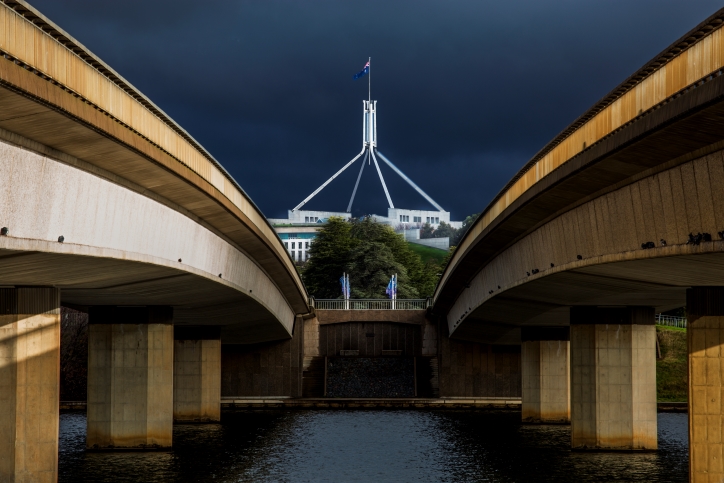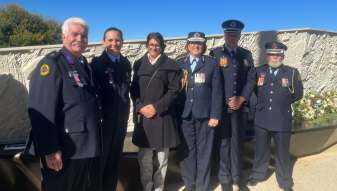Thank you very much for giving me the floor.
As you know, Sudan was the first country I travelled to in my function as High Commissioner
And I witnessed a country at a critical juncture.
There is profound pain that is born of decades of conflict, repression, impunity, and humanitarian crisis.
But there is also extraordinary hope – and expectation – for change, for peace, for democracy and justice, which is driven by people from all walks of life who are calling for a better Sudan.
The ongoing consultations between the military authorities and the civilian political forces is indeed very much welcome, to find a way out of the stalemate that has held the country back since October 2021.
The signing of the political framework agreement on 5 December 2022 was a first, important step towards the restoration of civilian rule and the transition to democracy. The strong commitments to human rights and justice it contains are very welcome, and I urge that they also be enshrined in the final agreement.
I am very grateful to the Sudanese authorities for their positive engagement and cooperation during my visit to Sudan, as well as for their cooperation with my designated expert and with my Office in the country.
Mr. President,
During my visit, I received commitments that the excessive use of force against protestors taking part in demonstrations would stop. While the toll has dropped significantly over the last few months, we are still seeing instances of killings and injuries of protesters that have been reported.
On Tuesday this week, a 17-year-old demonstrator was shot dead by a police officer in the Sharq Alnil area of Khartoum. The immediate action taken by the authorities to investigate this killing and to arrest the officer responsible for it is an important step.
According to medical sources, this young person was the 125th person to die since protests began over 16 months ago, one in five of whom have been children under the age of 18. Some 9,096 people have sustained injuries, many of them life changing, from live ammunition, rubber bullets, tear gas cannisters and other weapons that were arbitrarily fired by the security forces.
Impunity continues to be a serious issue. It is welcome that the judicial committee established to investigate serious human rights violations and other acts since 25 October 2021 has made some progress. Numerous other judicial committees have been set up to investigate human rights violations and abuses.
It is really important that this work is completed, and that their findings are made known. Indeed, genuine measures of accountability and transitional justice are seen by victims as a priority and, ultimately, a pre-condition for stability and democratic transformation. And it was indeed something I heard loud and clear when I had a chance to interact with victims.
I welcome the release of political prisoners, as well as 300 men detained on the orders of the Governors of North and West Darfur in 2021 and 2022 under emergency legislation. It is also welcome that the authorities have established a committee to review the compliance of the 1997 emergency legislation with international human rights law, as well as the authority given to state governors under this legislation.
I hope the committee will address concerns about the use of this legislation to detain people for long periods without trial or due process. My Office is ready to provide technical advice in this regard. In light of these developments, I urge the release of the 28 people arrested in Blue Nile under emergency legislation.
In Darfur, we saw first-hand the impact of the delays in implementing the Juba Peace Agreement and the National Plan for the Protection of Civilians. Many of the millions of displaced people have been away from their homes and lands for nearly 20 years, but still hold out hope that they will one day be able to return safely. And again it is one very strong message that I got when I engaged with internally displaced people in El Fashir.
I welcome the renewed agreement two weeks ago by the signatories of the Juba Peace Agreement on its implementation.
Mr. President,
I am concerned by the pushback on the important gains that were made by women under the transitional government. Women have been at the forefront of peaceful protests and civil society action. I met many of them during my visit. Yet, they have increasingly borne the brunt of hate speech, intimidation and harassment, both offline and online.
Civil society representatives have told us about limitations imposed on civic space, such as increased bureaucracy, denial or long delays in registration, scrutiny of civil society activities, and, at times, harassment of their staff. An open and vibrant civic space is a key ingredient for the future of Sudan.
Also worrying is the marked regression in the enjoyment of socio-economic rights. The costs of basic services, food and fuel have skyrocketed, and the population is under enormous pressure as a result of increased taxes and fees, including school fees, with scant increases in wages. And this is obviously part of the particular challenges that the country faces, not least because of the socioeconomic situation but also coming out of COVID-19, and the global consequences of what we are experiencing in Europe today.
Mr. President,
For the way forward, I suggest the following.
I urge the authorities explicitly to instruct the security forces to respect human rights and international standards on the use of force and firearms. Everyone has the right to peaceful assembly and protest, and the State has an obligation to ensure this right of all Sudanese is fully respected.
On justice, all those responsible for human rights violations and abuses must be held to account, in accordance with due process and without unjustified delays. Credible, victim-centred transitional justice processes are key. And this came very strongly from the people I had a chance to listen to.
Review of emergency legislation must ensure that any amendments are fully in line with international human rights law.
For women and girls, I urge the authorities publicly to commit to guaranteeing fully their rights, including zero tolerance for sexual violence and all forms of discrimination.
For the people of Darfur – who need security and a political commitment to resolve underlying causes of conflict – full implementation of the Juba Peace Agreement is vital, as is implementation of the National Plan for the Protection of Civilians to help protect communities from ongoing armed attacks.
My Office stands ready to strengthen its support, including for legal and institutional reforms to promote and protect human rights, the development of a victim-centred transitional justice process, and to broaden civic space.
Mr. President,
The memories of Sudan’s 30-year dictatorship are still fresh in its people’s minds. They are determined not to return to the past.
Transitions are never straightforward, as we have seen in many places around the world. But they provide enormous opportunities for progress in all areas of economic, social, cultural, civil and political life, and for sustainable development that is more equitably shared.
I encourage all parties in Sudan to put aside individual and sectoral interests and to work towards a future defined by the common good. Rebuilding trust between the authorities and the Sudanese people is critical to Sudan’s future. There is no doubt about that. A new civilian-led government will also need sustained international support to tackle the immense challenges it will face.
I stand in solidarity with the people of Sudan and wholeheartedly share their hopes and demands for genuine change, peace, democracy and justice, and their desire for a society where they can participate, freely, equally, and safely.
Thank you.







